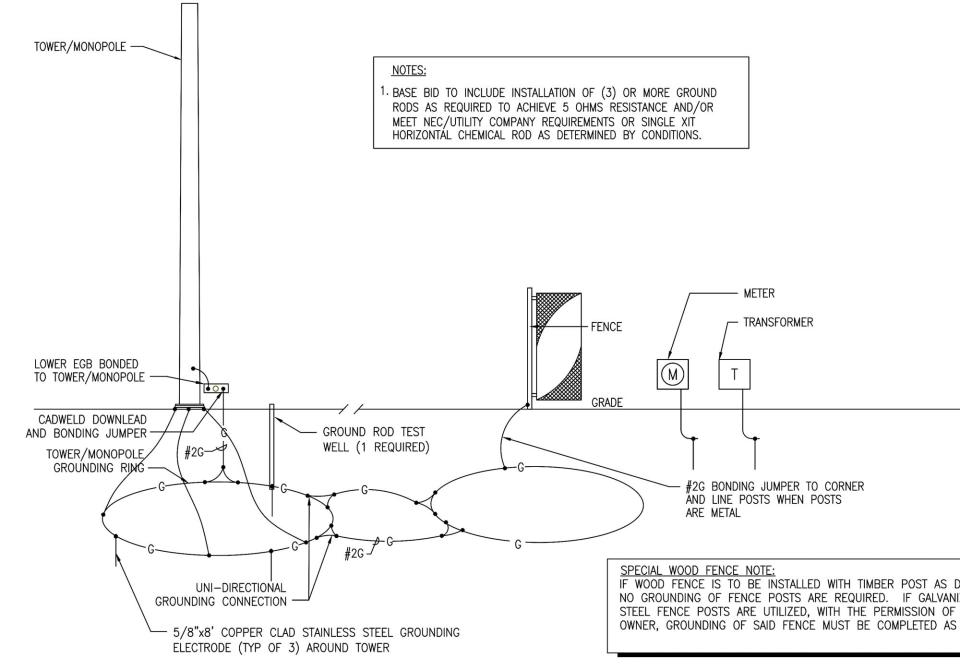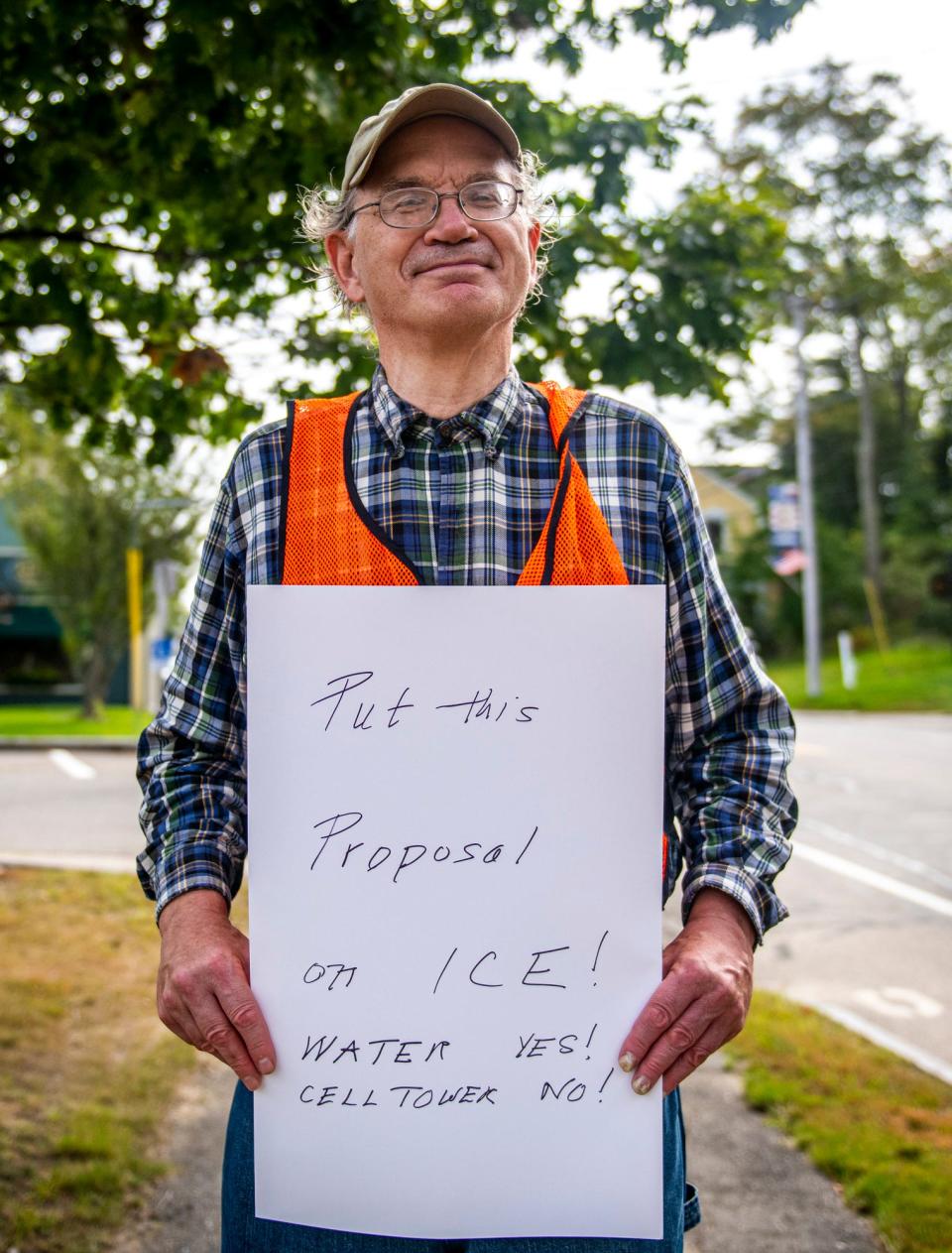York rejects 120-foot cell tower to fix dead zone: Here’s why and what comes next
YORK, Maine — A proposed new cell tower in York Village hit a dead zone last week after the town's Appeals Board rejected a variance request for the 120-foot monopole.
The board voted unanimously Sept. 14 to reject Vertex Towers' request to erect the tower in the woods at 162 York St. behind the First Parish Church.
Vertex told board members the federal Telecommunications Act precludes local boards from preventing towers where coverage gaps exist, but board members said they were bound to reject the variance by town ordinance and state law.

Board members determined the project violated at least one of the four criteria required by state law for a variance to be granted — that the project would not “alter the essential character of the locality.” Vertex has proposed dressing the monopole to appear as a tree, but board members said they doubted the tall structure would go unnoticed.
“I find it totally in askance to believe that a 120-foot tower structure in the middle of a forest does not alter the essential character of the locality,” said board member Michael Swant. “That is preposterous to me.”
Previous story: Vertex Towers threatens lawsuit if York rejects 120-foot cell tower project
Board members said the town’s own ordinance also prohibited the Appeals Board from granting variances for uses that are “otherwise prohibited” in a given zone. That alone was enough for board member Michelle Marean to vote against the project.
“When it says, ‘A variance shall not be granted to permit a use or structure otherwise prohibited,’ why do we go further with that?” asked Marean. “My vote would be to stick with the first sentence of the ordinance.”
More: No one wants to pay $400K for rat-infested York home: Here’s town’s next move
Legal counsel gives green light to reject cell tower
Cell towers are allowed in two areas of town called overlay districts, one that runs along Route 1 and Interstate 95, the other being in the western part of the town. Vertex first came before the board in August requesting a variance to allow them to build a tower where the use is prohibited. They are simultaneously seeking approval from the Planning Board for the project, with whom they were scheduled to meet Thursday, Sept. 22.
When Pigs Fly Breads: Meet the brothers that look to bring York-based company to new level
Vertex representative Francis Parisi told the board at the August meeting they were obligated to grant the variance under federal law, which he said preserves the right for companies to build towers where a gap in coverage exists and no other alternative can be found. He said Vertex had submitted to the town an extensive review of why no alternative exists and that a rejection would likely lead to action in federal court.
“The federal law, to be fair, does not say you have to say ‘yes.’ It just says you can’t say ‘no’ without sufficient reason,” Parisi said. “There’s a gap in coverages, and there’s no viable alternative.”
Board members postponed their August vote to September because they wanted to wait for advice from town counsel. They received a letter that was read during the Sept. 14 meeting from attorney Mary Costigan, who advised that the burden is on the applicant to demonstrate there is a significant gap in coverage. Board members took her letter as assurance they were not obligated to grant the variance.
“We got distracted by the threat, at the time it felt like a threat, of a lawsuit,” Marean said. “Mary (Costigan) has come back and said, ‘You may ask for a technical review, or we may follow the ordinance, and that is our decision.”
Maine Lobster Week: Here is a sneak peek at what local restaurants have planned
York divided over cell towers
York’s residents have debated the issue of cell towers for years, both on whether and where to allow them in town. The town’s Wireless Telecommunications Facilities Ordinance was first enacted in 2002, establishing the two sections of town known as overlay districts where towers are allowed to be placed. A citizen’s petition sought a moratorium on cell towers in York at this year’s May referendum, though voters turned the article down.
Cell towers have become the center of local battles around the country as wireless communications companies seek to expand coverage against the will of municipal and state laws.

The project proposed by Vertex in York has not gone without local support, as York Village Fire Chief Chris Balentine wrote a letter to the Planning Department June 22 stating the new tower would help emergency services. He said there has been an increase in calls, and that the improved service is something they “sorely need for coverage in York Village and York Harbor areas.”
“The York Fire Department supports the communications upgrades by Vertex,” Balentine wrote. “I feel this will be a definite enhancement for emergency services due to the increase in the level of service.”
York to caretaker: Work with us or town will demolish historic beach home hit by fire
The Appeals Board heard from several residents in their meeting last week that opposed the tower. Former selectman Torbert Macdonald said Vertex and the board had not considered repeaters to extend coverage, as was done in the harbor section of town recently.
“The fact of the matter is, with repeaters and microcells, you can get coverage anywhere in town,” Macdonald said.
Local historian James Kences, a member of the First Parish Church, lamented the church for considering the project. He criticized the church leadership as stewards and described their agreement with Vertex as treating the land like a “commodity.”
“The very time church leadership has dedicated itself to concern for the environment as a focus of activity, it somewhat schizophrenically is also intent on desecrating the church woods with a fake tree,” Kences said. “How seriously can we consider the church’s commitment to the environment?”
Parisi responded to statements made by the public, saying repeaters and microcells were practical in urban settings where coverage is already ubiquitous and only a small gap needs to be filled. He said that made sense in York Harbor where a repeater was recently installed, but not for widespread coverage needed across York.
He also responded to Kences by saying the church had made the decision to allow the tower with great thought and through many meetings. Parisi said he had met with church trustees that day and that they were working with Vertex as a “benefit for the town.”
“They are representatives of this community as well,” Parisi said. “They are clearly behind this project, not from a financial standpoint. The money is insignificant. It’s the benefit of the town.”
This article originally appeared on Portsmouth Herald: York ME rejects 120-foot-tall cell tower to fix dead zone

